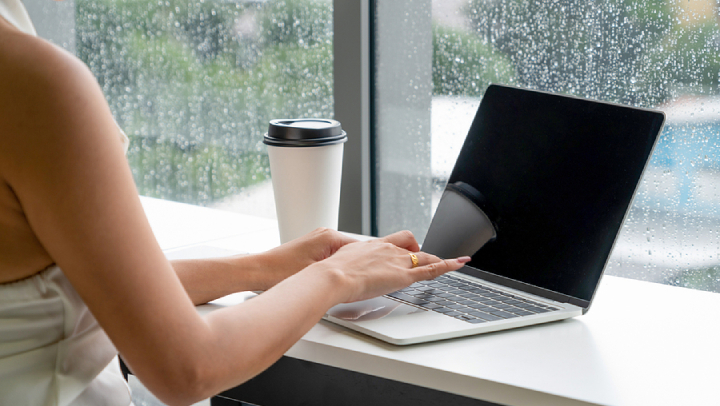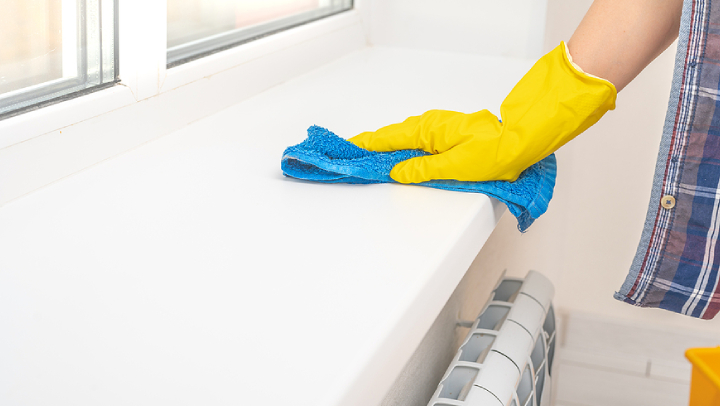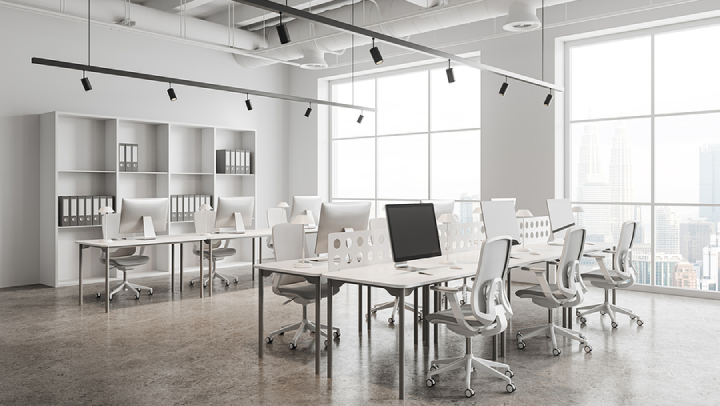Singapore’s wet season is known for its frequent downpours, increased humidity and unpredictable weather patterns. While it brings a refreshing break from the heat, the rainy season also presents a host of cleanliness challenges for office environments. From muddy footprints to musty smells, offices often become less hygienic and more difficult to maintain during this time. Businesses that want to ensure a clean and comfortable working environment for employees and visitors must take a more proactive approach to cleaning during the rainy months.
Muddy footprints and slippery floors become a daily issue
One of the most immediate and visible effects of the rainy season is the constant appearance of wet and muddy footprints in office lobbies and corridors. With people walking in from the rain, floors quickly become dirty and slippery. This not only affects the aesthetic of the workplace but also increases the risk of slip-and-fall accidents, especially on tiled or marble flooring. Having the right cleaning team in place to wipe down floors regularly is essential during this season.
Placing high-absorbency floor mats at all entrances and exits can reduce the amount of dirt and moisture brought indoors. These mats need to be cleaned or replaced frequently to remain effective. Regular mopping and spot-cleaning also help maintain a clean appearance and prevent safety hazards.
Office carpets absorb more than just water
Carpets in offices are especially vulnerable during the wet season. They absorb water from wet shoes, creating a breeding ground for mould, mildew and bacteria. The dampness also leads to musty odours, which can affect indoor air quality and employee comfort. Without proper care, office carpets can deteriorate faster and require costly replacements.
To prevent this, office carpet cleaning should be scheduled more frequently during the rainy months. Deep cleaning methods such as hot water extraction or steam cleaning can remove trapped dirt, allergens and moisture, keeping the carpets fresh and hygienic. Drying time is also important; ensuring carpets are properly dried after cleaning prevents further moisture build-up and odour issues.
Increased humidity creates a haven for mould and dust mites
The high humidity during the rainy season in Singapore contributes to mould growth, particularly in poorly ventilated areas of the office. This includes storerooms, ceiling corners and behind furniture. Dust mites also thrive in humid environments, aggravating allergies and respiratory issues among staff.
Regular air-conditioning maintenance, the use of dehumidifiers, and improved air circulation are key to reducing humidity levels indoors. Surfaces such as walls, ceilings and office equipment should also be wiped down regularly to remove condensation and prevent mould from taking hold. Cleanliness extends beyond what’s visible to the eye, especially when it comes to indoor air quality.
Toilets and pantries get messier faster
Rainy weather often means staff will spend more time indoors, increasing the usage of shared facilities like toilets and office pantries. The increased foot traffic can quickly lead to dirt build-up, overflowing bins, and unpleasant odours if not managed properly. Wet umbrellas and damp clothing can also make these areas smell musty or feel clammy.
A heightened cleaning schedule during the rainy season ensures these high-touch areas remain sanitary and pleasant for everyone. Engaging part-time office cleaning services in Singapore can help businesses manage the additional workload without the need to hire full-time staff. These services can focus on detailed cleaning and disinfection, replenishing supplies and maintaining cleanliness throughout the day.
Pest problems become more common
The rainy season also brings about a spike in pest issues. Ants, cockroaches and even rodents may seek shelter from the rain by entering buildings, particularly through drainage points or poorly sealed doors and windows. Food crumbs, dampness and warmth all make the office a welcoming space for pests to settle in.
Keeping the office clean and dry is the first line of defence. Regular disposal of rubbish, especially food waste, is crucial. Pantry and eating areas should be cleaned thoroughly after every use. Deep cleaning and vacuuming around hidden corners, beneath furniture and behind cabinets can prevent pests from nesting undetected. Partnering with a professional cleaning team ensures a more thorough and consistent approach to pest prevention.
Employees feel the effects of a dirty office environment
A dirty office doesn’t just affect the appearance of the workspace. It can impact employee health, morale and productivity. Poor indoor air quality, lingering smells and damp conditions can lead to increased sick days, fatigue and discomfort among staff. First impressions also matter when clients or business partners visit the premises during the rainy season. A clean, tidy office signals professionalism and attention to detail.
Companies that invest in routine maintenance and hygiene practices during the rainy season stand to benefit in the long run. The costs of dealing with neglected cleaning issues often far outweigh the investment in preventive cleaning solutions.
Abba provides tailored cleaning solutions to help offices maintain a high standard of cleanliness even during Singapore’s wettest months. Whether it’s regular mopping, disinfection or office carpet cleaning, our experienced team ensures that cleanliness remains a priority no matter the weather. Visit Abba to learn more about how we can support your office during the rainy season.



